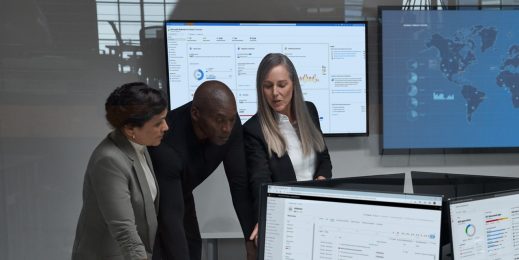
Aurecon uses generative AI to share its codified knowledge with users and improve business efficiency
Aurecon has built two new AI-powered solutions to allow users to access its deep expertise and improve information retrieval for key business processes
International design, engineering and advisory company Aurecon is using generative AI to accelerate the delivery of its expertise to clients and improve key internal business processes.

The company’s latest tool, Recall, is built using Azure OpenAI Service to help clients use their information in an intelligent and unprecedented way. It allows users to interrogate Aurecon’s organisational data through an AI-powered expert-level interaction, as if speaking to a senior consultant.
“Recall is a new interface to our codified knowledge and structured data,” explains Managing Principal, Digital, Dave Mackenzie. “Users can ask Recall for information they would typically ask an expert consultant for. For example, what are the standards and guidelines applicable to designing roads in Australia?”
Currently, there are 2,000 active users of Azure ChatGPT at Aurecon, and the company hopes to supersede this with Recall – which has a built-in ChatGPT function for interactions that do not require Aurecon-specific deep expertise.
The solution also has a degree of built-in verification that ensures that it generates responses that are based on the right knowledge sources.
Aurecon has been on a digital transformation journey for several years. When the time came to build generative AI into its processes, the company’s data was already structured in a systematic way.
“We have built knowledge hubs around each of our capabilities and business practices that are stored in Microsoft SharePoint and other technologies,” says Mackenzie. “So, we were able to take these hubs and ingest them into Recall.”
Once in Recall, Aurecon pulled the data within these knowledge hubs apart, recategorised it and tagged keywords with Azure Cognitive Services. When users request information, Recall’s response is generated using Azure OpenAI and Azure Cognitive Services to identify domain-specific terms and distil information into natural language.
With Microsoft’s support, Aurecon was able to design, build and deliver Recall quickly.
“Since we are still in the early stages of developing our in-house generative AI capabilities, Microsoft has been an incredible partner to have on the journey,” says Mackenzie. “We’ve received guidance from specialists in the Global Black Belt team who have allowed us to stay on pace to achieving our AI ambitions.
Building on the Microsoft stack has also allowed us to take advantage of built-in safety and compliance features, so that we are designing responsible and ethical generative AI solutions.
The company has also built WinWise, an internal AI-powered document analysis tool that allows teams to quickly process requests for proposals and tender responses. It can generate summaries of complex documents and write responses to frequently asked questions, as well as identify potential experts within Aurecon to respond with the best people in mind.
“The question we’re asking ourselves at Aurecon as we embrace the generative AI transformation is how can we provide tools that have our expertise baked into them while also being fit for purpose for our clients’ asset-intensive businesses,” says Mackenzie.
“How can generative AI tools augment the way they work daily and what are the tricky problems that we can solve by applying generative AI with their expertise and ours?”
Aurecon is planning to scale Recall across the entire organisation and will extend access to clients and partner institutions over the next few months as part of Aurecon’s broader Generative AI solutions.
According to Sarah Carney, Chief Technology Officer, Microsoft ANZ, “Engineering is inherently complex and involves huge datasets.”
Organisations need intelligent tools that help their people make sense of this data and enable people to spend more time adding value in their role, rather than sifting through vast amounts of information.














